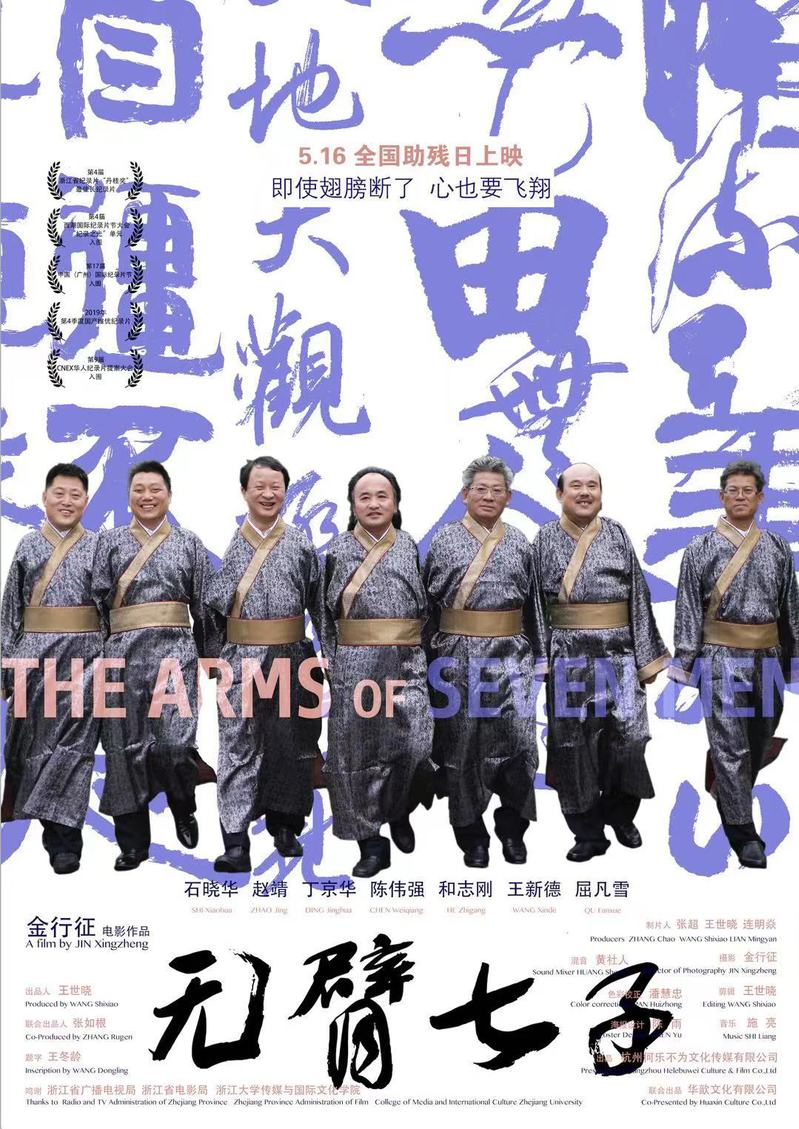Dialogue@ZJU: With Prof. JIN Xingzheng, College of Media and International Culture
[Message from the editor: May 16 marks the 31st National Day for Helping the Disabled. The Arms of Seven Men, a documentary film directed by Prof. JIN Xingzheng at the Zhejiang University College of Media and International Culture, was released nationwide on May 15. Seven artists from all over the country, who lost their arms at different ages for one reason or another, became accomplished calligraphers and painters against overwhelming odds. To give back to the society, they sold their works and raised funds for the building of the “Seven Men” School in a mountainous area in Yunnan Province. Recently JIN accepted an interview by China Youth Daily. ]

Q1: How did you get in touch with such a special group and what urged you to shoot this film?
A: In 2017, a friend of mine recommended “The Arms of Seven Men” to me by chance. I was awestruck by their unimaginable power, particularly CHEN Weiqiang, an artist who used his chin to engrave characters.
Q2: The film mirrors the ordinary daily life of the “Seven Men” rather than their misery or hopelessness. This perspective differs substantially from that in other films about the disabled. Why did you choose this unique angle?
A: The heaviness of their life is merely a physical defect rather than a spiritual flaw. The value of a radiant life is embodied in their remarkable artistic achievements in calligraphy and painting. While shooting this film, we were greatly touched by every bit detail of their daily life, say, dressing up, brushing their teeth, and carving. They need appreciably more willpower than ordinary people. Moreover, they also go to take care of others from time to time.
Q3: The seven armless men are unfortunate people who have suffered from much adversity in life, but they are also strugglers who haven’t surrendered to destiny. They have painted an extraordinary life with their brushes. What does it mean to them?
A: They have found a new direction for their efforts in unknown battlegrounds. As can be seen from their works, art is equal. Disability did not deprive them of their pursuit of art. As CHEN Weiqing said, we cannot tell whether the artworks on the wall are created by physically challenged people or not.
Q4: This film is teeming with the power of life and featured by inclusiveness. What is the most important thing you want to express to the audience through this documentary?
A: I want to let more people understand this group. People with disabilities are often given a special status and treated in a special way. Few scholars are concerned about their spiritual appeal, including their true emotions and artistic cultivation, from the perspective of the disabled. I also want to inspire more disabled people to enrich or even change their lives through a real documentary film.
Q5: The soul of a documentary is to look into the hearts and minds of people by describing their lives as they are. How do you understand documentaries?
A: As long as you dedicate yourself into making a documentary and understanding the people being filmed, you will capture the nuanced details of their hearts and minds. Documentaries cannot solve social problems directly, but through them, people can be exposed to different aspects of society, which may well promote the overall development of our society vicariously.
Source: translated from China Youth Daily